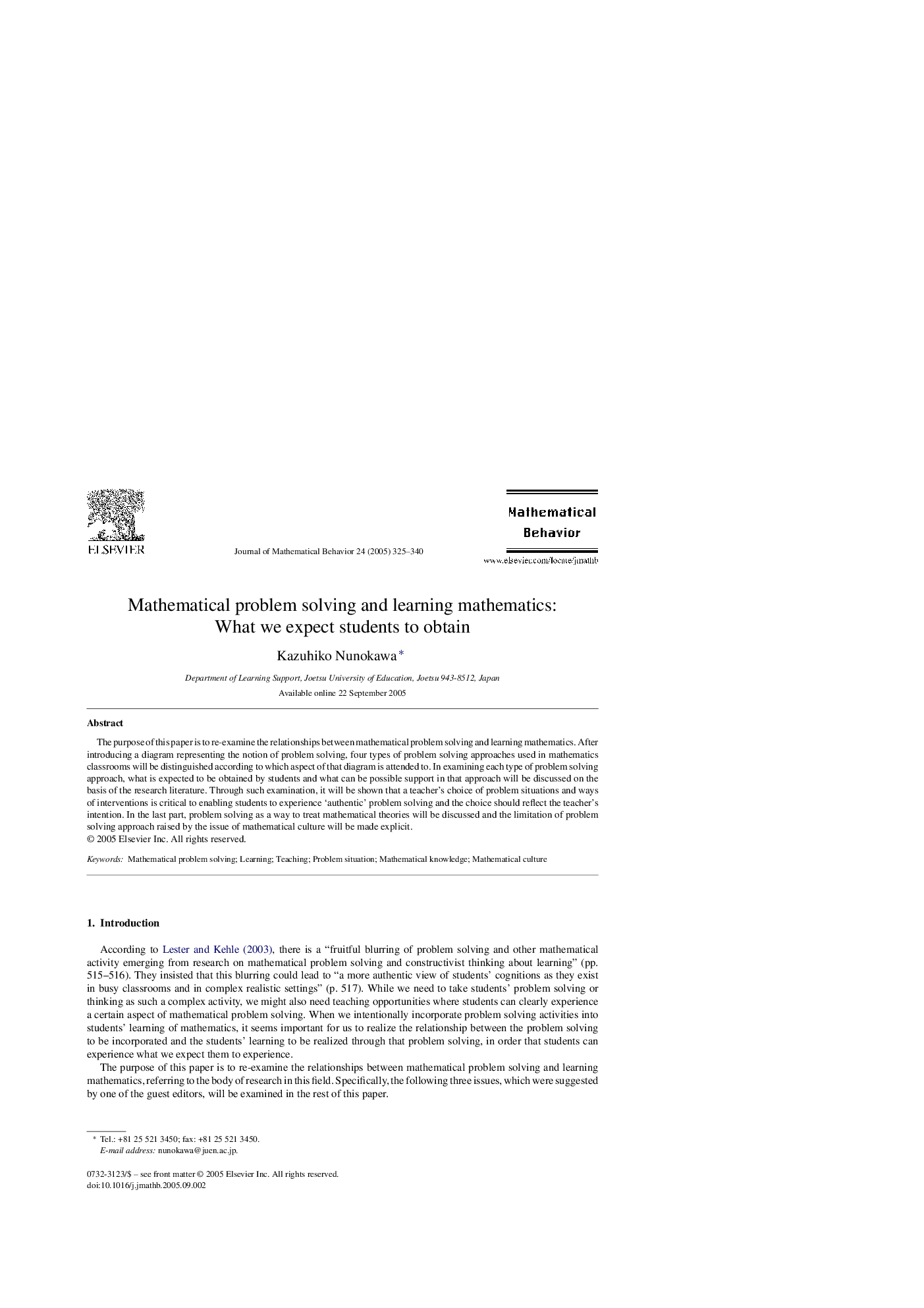| کد مقاله | کد نشریه | سال انتشار | مقاله انگلیسی | نسخه تمام متن |
|---|---|---|---|---|
| 9649460 | 1436050 | 2005 | 16 صفحه PDF | دانلود رایگان |
عنوان انگلیسی مقاله ISI
Mathematical problem solving and learning mathematics: What we expect students to obtain
دانلود مقاله + سفارش ترجمه
دانلود مقاله ISI انگلیسی
رایگان برای ایرانیان
کلمات کلیدی
موضوعات مرتبط
مهندسی و علوم پایه
ریاضیات
ریاضیات کاربردی
پیش نمایش صفحه اول مقاله

چکیده انگلیسی
The purpose of this paper is to re-examine the relationships between mathematical problem solving and learning mathematics. After introducing a diagram representing the notion of problem solving, four types of problem solving approaches used in mathematics classrooms will be distinguished according to which aspect of that diagram is attended to. In examining each type of problem solving approach, what is expected to be obtained by students and what can be possible support in that approach will be discussed on the basis of the research literature. Through such examination, it will be shown that a teacher's choice of problem situations and ways of interventions is critical to enabling students to experience 'authentic' problem solving and the choice should reflect the teacher's intention. In the last part, problem solving as a way to treat mathematical theories will be discussed and the limitation of problem solving approach raised by the issue of mathematical culture will be made explicit.
ناشر
Database: Elsevier - ScienceDirect (ساینس دایرکت)
Journal: The Journal of Mathematical Behavior - Volume 24, Issues 3â4, 2005, Pages 325-340
Journal: The Journal of Mathematical Behavior - Volume 24, Issues 3â4, 2005, Pages 325-340
نویسندگان
Kazuhiko Nunokawa,